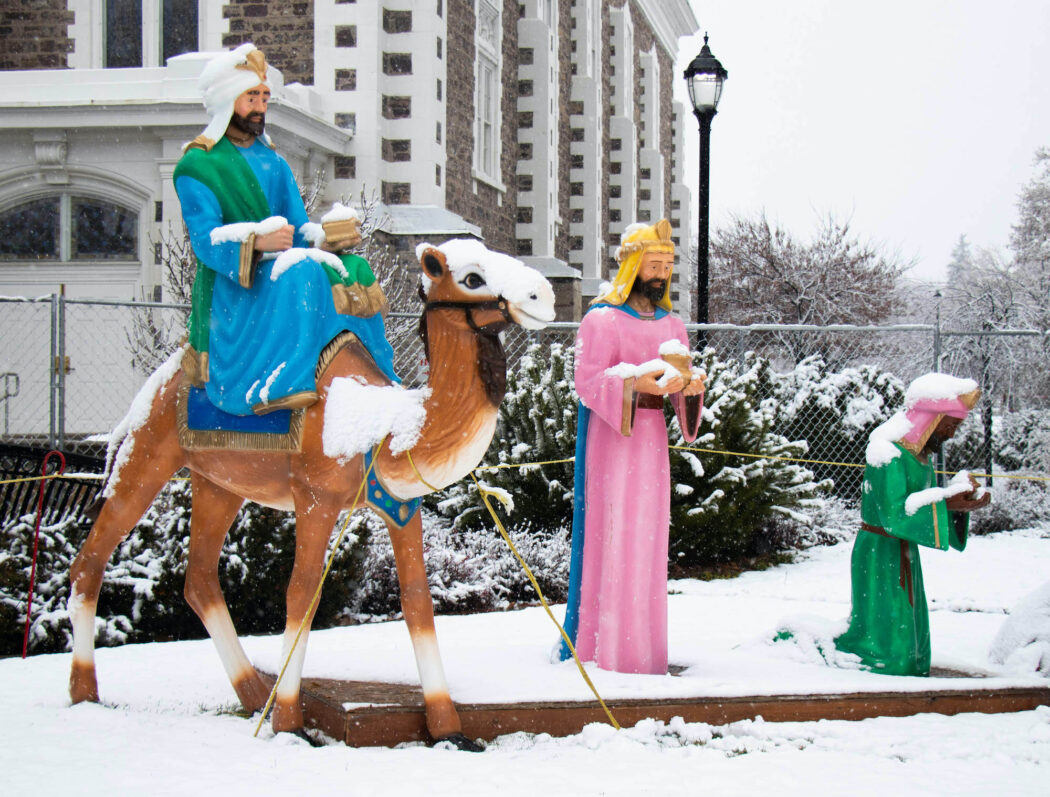Logan residents celebrate Three Kings Day
Christmas trees, presents and colorful lights signify the approach of the holidays for many Americans. However, the celebrations minority groups take part in during the winter season to honor their own holidays are often overlooked.
This season, Lizzette Cruz, a first-generation Latina and mother of four kids living in Cache Valley, hopes to showcase one underrepresented holiday in the community.
Three Kings Day, or El Dia de los Tres Reyes Magos, is a traditional Catholic holiday celebrated on Jan. 6 in many Latin American countries and Spain.
The holiday pays homage to the wise men, figures in Christianity believed to have gifted baby Jesus with frankincense, myrrh and gold after his birth. The holiday is thought to originate in the fourth century when a grand feast would be used to honor the religious figures.
The holiday has evolved into a celebration that mirrors Christmas, featuring gift-giving and traditions the night before. Although every country has slight variations on the holiday, but there are some common themes between all of them.
For example, in Mexico and many other Latin American countries, individuals prepare a special sweet bread called Rosca de Reyes the night before. Inside the bread, someone will hide either one or several tiny plastic figurines of baby Jesus.
“Whoever got that baby would have to sponsor a meal on Feb. 2,” Cruz said.
Feb. 2, or Candlemas Day, is another Catholic holiday that commemorates Jesus’s biblical presentation at the temple.
Many celebrants follow the tradition of leaving their shoes outside overnight to be filled with gifts by the three kings. Some will also leave water and grass for the three kings’ camels much like children make carrots for Santa’s reindeer the night before Christmas.
Many families find ways to relate the holiday back to its inspiration: the biblical stories of the three kings.
“It always went back to my grandma telling the story of why the three wise men would bring us gifts was because they are the ones that took the gift to Jesus,” Cruz said.
This made the holiday that much more special for Cruz. It didn’t merely represent an excuse for gift-giving or parties, for her it was a direct representation of an important aspect of her and her family’s spirituality.
In many Latin American countries, Three Kings Day is often celebrated more than Christmas. For example, in Cuba, Christmas is simply a day full of feasts and parties rather than the tradition of gift-giving.
The actual Three Kings Day celebration in Cuba mirrors Christmas more closely than the traditions in some other Latin American countries.
“You put the gifts under the tree with cookies and milk for the kings and the next day the kids wake up early to open their gifts,” Pilar Saavedra, a Cuban immigrant from Orem, said of her celebrations for the holiday from when she lived in Cuba.
It can be difficult to celebrate holidays such as Three Kings Day in the U.S where they are not shared by the majority nor advertised in the mainstream media. Cruz works hard to counteract this and keep the holiday alive, even in a place such as Logan where the Latino population represents the minority.
“Because we are such a minority here in Cache Valley I took it on myself to try every way that I could to definitely bring that back not only for my children, but for those in the community,” Cruz said.
She does so through community events at the Logan Library where she showcases the holiday’s traditions.
“We have people dress up and then have like small gifts donated,” Cruz said.
Although organizing such events can be difficult especially with a limited budget, such as Cruz’s, they are worth it to Cruz because of what they represent.
“It comes back to culture,” Cruz said. “That’s where we come from.”

